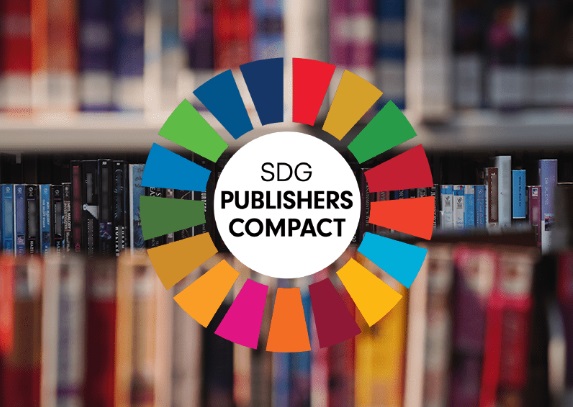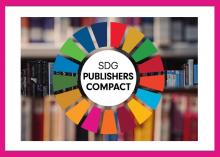by Carmel McNamara, IOS Press, Amsterdam, NL
IOS Press joined the UN’s SDG Publishers Compact at the end of 2020 and, in doing so, committed to develop sustainable practices and act as champions of the Sustainable Development Goals (SDGs), publishing books and journals that will help inform, develop, and inspire action in that direction. As a company, we contribute to this primarily by the sharing of ideas and in relation to the content that is published, and we established a working group to begin looking at the SDGs with an aim to set specific targets. Read on to discover the priorities and plans in terms of gender and diversity, as well as assessing partnerships in terms of responsible production.
The UN's 2030 Agenda for Sustainable Development and its 17 Sustainable Development Goals (SDGs) have seen numerous sustainability transformations emerging. From now up to 2030, we must take urgent action. As outlined on the UN website: "We must be the generation to end extreme poverty, win the race against climate change and conquer injustice and gender inequality. We will shine a light on solutions that expand access and demonstrate the possibilities of ideas. We will drive sustainable innovation."

The formation of the UN’s SDG Publisher’s Compact was announced in October 2020 during the first virtual Frankfurt Book Fair in collaboration with the International Publishers Association (see more here). The compact features 10 action points (see Box 1) that publishers and others can commit to undertaking in order to accelerate progress to achieve the Sustainable Development Goals (SDGs) by 2030. In doing so, they share a common obligation to work towards a sustainable future.
SDGs Content
How does IOS Press contribute and advocate for sustainable practices in relation to its membership of the SDG Publishers Compact? Primarily, in the sharing of ideas and in relation to the content that is published. We highlight SDG-related articles that have been published in IOS Press journals (and books) in our quarterly mailing and on our dedicated website section. A selection of related content from three journals that regularly publish on SDG-related topics are included below.
Towards sustainability to realize Agenda 2030
One of the most popular contributed blog posts on the Environmental Policy and Law (EPL) website focuses on sustainability. In particular, it highlights the urgent need for the transformation of sustainability pathways and how vital it is that this is carried out in an integrated manner. Almost 5 years after the adoption of Agenda 2030, the Global Sustainable Development Report was written prior to the 74th session of the UN General Assembly in 2019 and it outlined the science behind what was needed to achieve sustainable development. This article highlights the key players and points.

Read Article | View EPL’s Sustainability Section | Our Earth Matters
Envisioning the future through e-transparency
A recent Information Polity article highlights the lack of correlation between long-term goals and available data relating to commitments or international agreements like the SDGs. The study outlines a method that has been developed to allow a civil society organization to seek public budget information using open government data (OGD). Such OGD platforms can be used to monitor government capacity in achieving policy goals and five constraints have been identified for their use: granularity, traceability, correlation, accessibility, and usability. Civil society is interested in using the information to project the future outcomes of public policy rather than monitor the past, which enables envisioning the future public policy accomplishment.

View Article
Sustainable development goal indicators
In a recent issue of Statistical Journal of the IAOS, there are articles covering sustainable development. One paper looks at assessing sustainable causal relationships between informal employment indicators and the main components of SDGs. Others suggest providing more up-to-date information for monitoring sustainable development and timely evidence for policy makers have led to an increased interest in “nowcasting.” Technological innovations, new data sources and the emergence of big data have created additional opportunities to follow economic and social developments with reduced time lags. This is covered in this paper and in this special editorial.

View Issue | Join a Discussion










